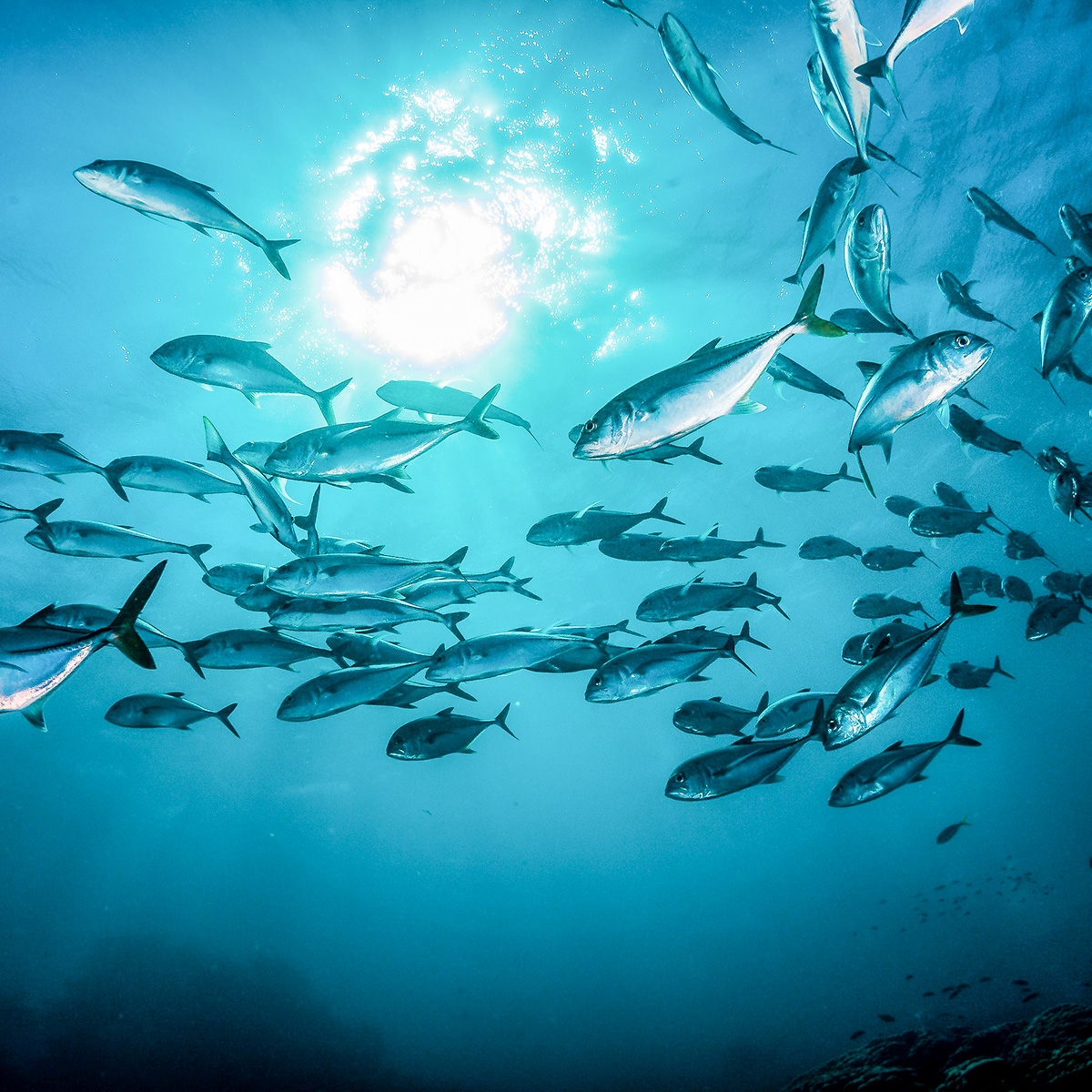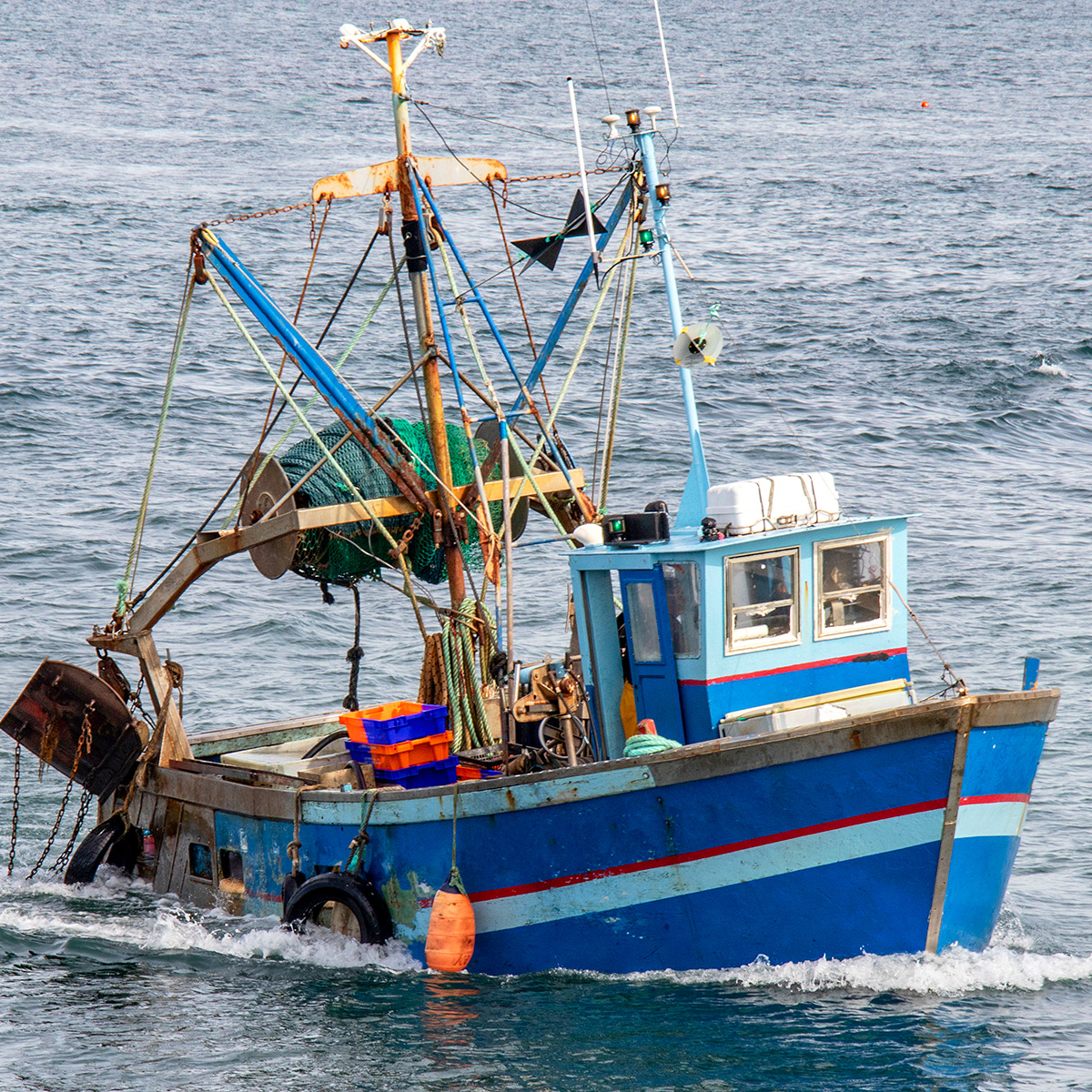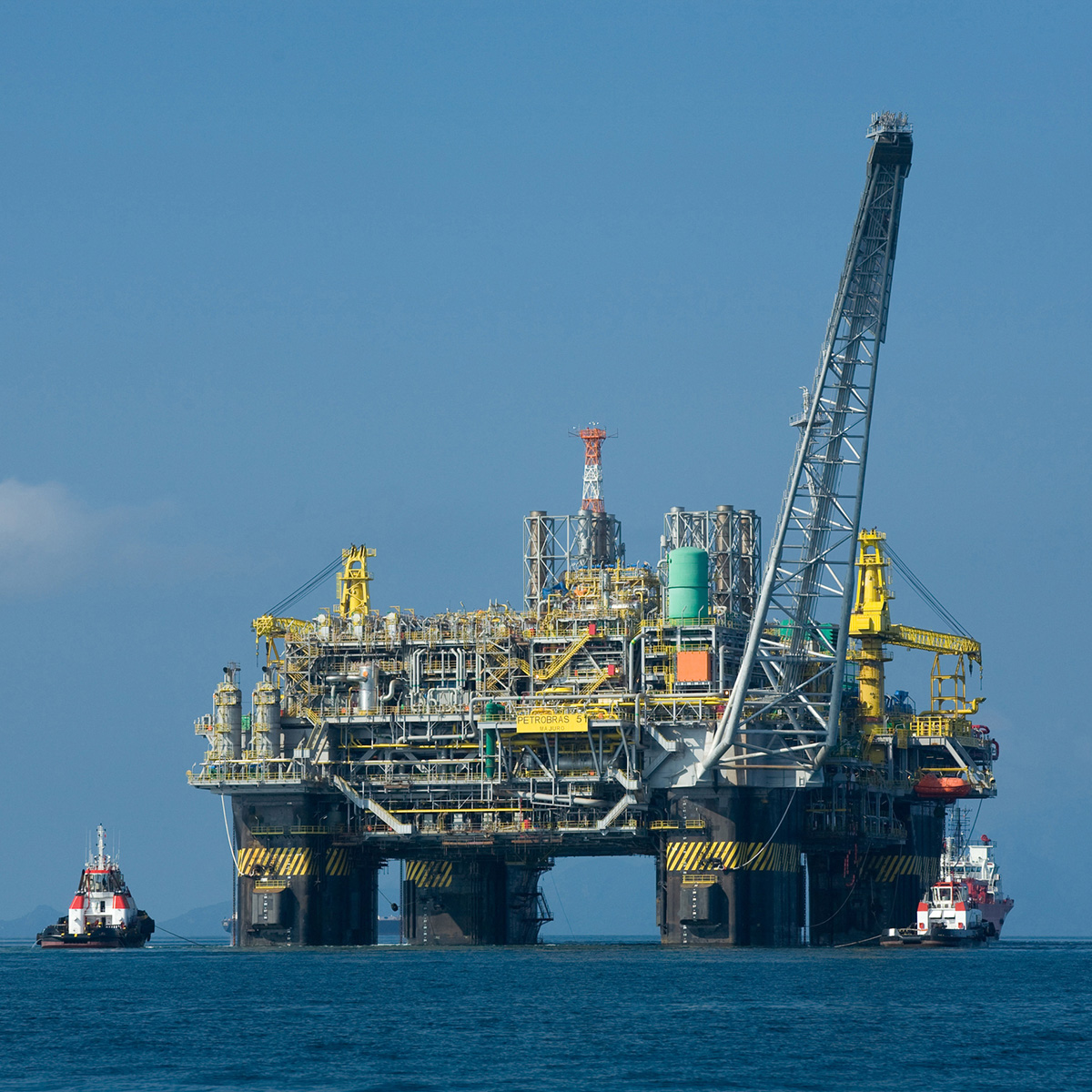Responsible use of resources
ISMER-UQAR researchers can diagnose the state of ecosystems so that these environments are protected while natural resources are used and developed.

Responsible use of resources
The planet’s food requirements are constantly increasing, and natural ecosystems have reached or exceeded their capacity to meet these needs. The depletion—if not collapse—of traditional fishery resources poses new challenges, both from an ecological point of view (what changes are induced in the ecosystem?) and from a technological point of view (how can we make the most of existing resources?).
Similarly, the use of fossil fuels requires the exploration and exploitation of new sources, many of which are found in the marine environment. In general, the exploitation of any natural resource will have an impact on ecosystems, and these issues are not only of concern to the scientific community. Researchers must contribute to societal debates by providing the knowledge needed to make informed decisions.
Overall, ISMER-UQAR seeks to evaluate ecosystem health with the overriding goal of protecting these environments while enabling the potential of Quebec’s and Canada’s natural resources—whether renewable or not—to be used and developed while respecting the environment’s carrying capacity.
Aquaculture and fisheries
Aquaculture—in all its forms—has become an essential part of our approach to the use of marine bioresources, whether to support, complement, or replace traditional harvesting. The Food and Agriculture Organization of the United Nations (FAO) estimates that by 2030, this mode of production should provide almost half of the world’s fish requirements. However, challenges remain. This primary activity is highly sensitive to a range of biological, sanitary, and climatic factors that can influence animal performance, whether in terms of reproduction, recruitment and health, or weight gain.

While covering the fundamental aspects of knowledge acquisition, research conducted at ISMER-UQAR is strongly oriented towards developing priorities identified by Quebec’s aquaculture industry and its partners. The synergy created by consultation and collaboration between researchers with diverse skills allows ISMER-UQAR to play a leading role within Ressources Aquatiques Québec (FRQNT Strategic Grouping). ISMER researchers are interested not only in the microbiological, physiological, and nutritional study of suitable and high-performance species (fishes and invertebrates) for intensive farming, but also in aspects related to recruiting species of interest to support commercial fishing. It is already recognized that climate changes will impact the choices of species, strains, or production types to be favoured for the future development of the aquaculture industry. They could also lead to a shift in the stocks currently exploited by commercial fishing. These questions require answers that researchers at ISMER-UQAR will increasingly be called upon to address. The quality of the facilities at the Pointe-au-Père aquaculture station plays a key role in the ability of ISMER-UQAR researchers to carry out cutting-edge projects in this field.
The removal of bioresources associated with intensive aquaculture programs can lead to imbalances and disruptions in productive ecosystems. If not controlled, these activities risk compromising sustainable resource development, leading to potentially disastrous ecological and socio-economic consequences. Given the strong and continually expanding requirements of the food and other markets (pharmaceutical or paramedical), activities related to the production of aquatic bioresources have been developing rapidly over the past thirty years, adding to and in some cases even replacing extraction from the environment. Faced with this expansion, ISMER-UQAR researchers are working in several key sectors to respond to priorities resulting from the decline of natural stocks (fishes and other marine species); these include 1) aquaculture production; 2) understanding the critical conditions supporting the maintenance of biodiversity around aquaculture sites; and 3) the development of bioproducts derived from marine resources and the valorization of marine biomass.
The study of benthic invertebrate assemblages is a common way to assess environmental impacts, including those related to aquaculture production or fishing activities. The development of ecosystem health indicators is a central theme for ISMER-UQAR researchers. Benthic populations, due to the sedentary nature of the organisms that compose them, are considered good indicators of health status. The physical structures installed for the culture of bivalves and fishes influence benthic communities in two ways: by modifying the hydrosedimentary dynamics and by acting as artificial reefs. Moreover, the biodeposits produced and rejected by cultivated organisms increase eutrophication and alter biogeochemical processes by modifying fluxes at the water–sediment interface and altering the composition of endofaunal assemblages. Changes in the benthic community will also affect ecosystem functioning as a whole. In a sustainable development context, it is therefore important to qualify and quantify the influence of aquaculture on the environment. This is a domain of interest for ISMER-UQAR researchers.

Exploration and Exploitation of Submarine Fossil Resources
The exploration and exploitation of hydrocarbons in Quebec’s marine environment is regularly a subject of debate, if not controversy. Even though there is currently a moratorium in this area, many political, economic, and industrial stakeholders are pushing for new hydrocarbon extraction activities in the Gulf of St. Lawrence in the short or medium term. Events such as the 2010 Deepwater Horizon disaster in the Gulf of Mexico remind us that these activities present serious risks in an enclosed environment like the Gulf of St. Lawrence.
An exercise reviewing the state of oceanographic knowledge for this region must be undertaken. A strategic environmental assessment specific to the St. Lawrence (Anticosti, Magdalen, and Chaleur Bay basins), commissioned by the Quebec government, has identified numerous gaps in this knowledge. These gaps should be filled to ensure responsible and sustainable management of hydrocarbon exploration or exploitation activities of in the marine environment in the targeted sectors of the Gulf of St. Lawrence.
In this context, the work of ISMER-UQAR researchers in various areas of expertise will help fill the identified gaps. In the field of biology, the goal will be to identify and map biological communities. In geology, the aim will be to characterize the nature of the seabed, at the sediment surface and in deeper layers, using echo sounding and seismic reflection. Through field observations (high-frequency radars, current meters, drift beacons), physical oceanography researchers aim to improve the modeling of hydrodynamic circulation in the Gulf to predict the fate of potential oil spills. Particular attention will be paid to winter conditions, which remain very poorly understood in the Gulf of St. Lawrence. In chemistry, work will focus on developing high-performance tools to identify hydrocarbon sources (natural or anthropogenic), to study the degradation mechanisms of these hydrocarbons in cold environments, which have been little studied, and to examine the behaviour of methane in the water column.